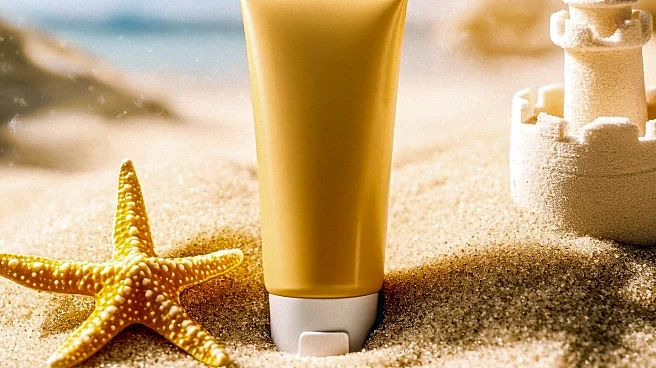What is the story about?
What's Happening?
Australia is facing a growing sunscreen scandal, with 18 products pulled from shelves due to safety concerns. The Therapeutic Goods Administration (TGA) has warned about 20 more sunscreens sharing the same base formula, which may not meet their claimed SPF ratings. The scandal began with Ultra Violette's Lean Screen Skinscreen, which was supposed to offer SPF 50+ but tested at SPF 4. The TGA has raised concerns about the reliability of testing conducted by Princeton Consumer Research Corp, a US lab, which many companies relied on for their SPF claims.
Why It's Important?
Australia has the highest rate of skin cancers globally, making reliable sunscreen products essential for public health. The scandal highlights potential flaws in sunscreen manufacturing and testing, which could have global implications for the industry. Consumers may lose trust in sunscreen products, leading to decreased sales and increased scrutiny of manufacturers. The issue may prompt regulatory changes and stricter testing requirements, impacting the sunscreen market and consumer safety.
What's Next?
The TGA is reviewing existing SPF testing requirements and has contacted companies using the problematic base formula and the PCR lab. Wild Child Laboratories, the manufacturer of the base formula, has stopped production and is conducting testing with other laboratories. The TGA's investigation may lead to changes in sunscreen regulations, and companies may need to ensure their products meet new standards. Consumers will likely demand more transparency and reliability in sunscreen testing and claims.
Beyond the Headlines
The scandal underscores the importance of rigorous testing and quality assurance in the sunscreen industry. It may prompt a reevaluation of testing methodologies and encourage the development of more accurate and reliable SPF testing techniques. The issue also highlights the need for better communication between manufacturers, testing laboratories, and regulatory bodies to ensure consumer safety and trust.
















